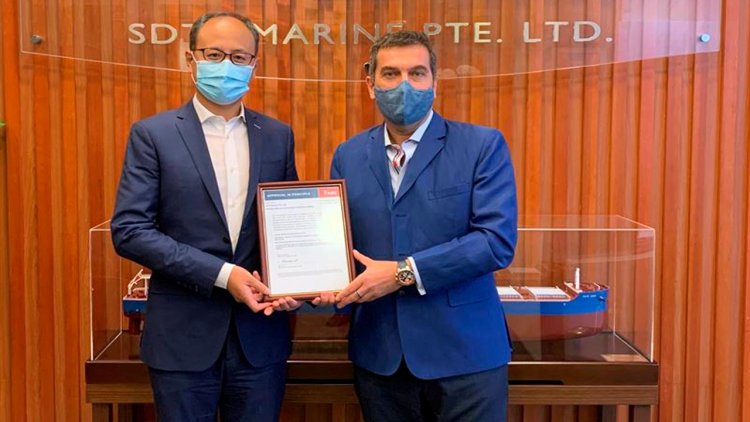ABS, SDTR and SDARI develop methanol-fueled bulker
An innovative methanol-fueled bulk carrier has been designed in a joint development project (JDP) between ABS, SDTR Marine Pte Ltd. (SDTR) and the Shanghai Merchant Ship Design & Research Institute (SDARI).

SDTR supplied key operational data and SDARI developed the design with ABS support and review. ABS also provided an analysis of methanol as fuel market outlook, including a vessel performance evaluation in various operating scenarios including under the European Union Emissions Trading System (Fuel EU, ETS).
Pier Carazzai, ABS Vice President, Pacific Regional Business Development, said:
"Methanol is a fuel which has genuine potential to contribute to shipping's decarbonization goals. ABS is working on industry-leading projects together with committed partners focused on delivering innovative solutions for the benefit of people, business and the environment. We are delighted to be able to use our experience to support this project."
Gao Dehui, CEO of SDTR Marine Pte Ltd., said:
"Continuous innovation to be a greener company is one of SDTR Marine Pte Ltd's key objectives and goal. As a professional and responsible Dry Bulk owner, we strive to continuously upgrade and innovate our Kamsarmax fleet to improve their energy efficiency to contribute towards the decarbonization of the shipping industry. The joint development of the Methanol-Fueled 85,000 DWT bulker with SDARI and ABS is an important step for SDTR in our process in achieving a zero-carbon fleet in the future."
Wang GangYi, Chief Engineer of SDARI, said:
"As one of the popular neo-Panamax bulk carriers, the 85,000 DWT BC designed by SDARI has achieved good market response. As of 2021, 37 construction contracts have been signed. Taking into account the decarbonization requirements of the shipping industry, SDARI has developed a series of new energy fuel solutions for bulk carriers. The 85,000 DWT BC, which uses methanol as fuel, is one of them. The advantages of methanol are mainly reflected in the lower transformation cost, and through the ratio of gray methanol and green methanol, it can meet the requirements of GHG emission reduction in 2050."



























